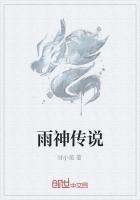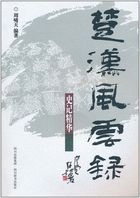Introductory Note Thomas Babington Macaulay (1800-1859) was the son of Zachary Macaulay, a Scotsman whose experience in the West Indies had made him an ardent Abolitionist. Thomas was an infant prodigy, and the extraordinary memory which is borne witness to in his writings was developed at an early age. He was educated at Cambridge, studied law, and began to write for the "Edinburgh Review" at twenty-five, his well-known style being already formed. He entered the House of Commons in 1830, and at once made a reputation as an orator. In 1834 he went to India as a member of the Supreme Council, and during his three and a half years there he proved himself a capable and beneficent administrator. On his return, he again entered Parliament, held cabinet office, and retired from political life in 1856.
Until about 1844 Macaulay's writings appeared chiefly in the "Edinburgh Review," the great organ of the Whig Party, to which he belonged. These articles as now collected are perhaps the most widely known critical and historical essays in the language. The brilliant antithetical style, the wealth of illustration, the pomp and picturesqueness with which the events of the narrative are brought before the eyes of the reader, combine to make them in the highest degree entertaining and informing. His "History of England," which occupied his later years, was the most popular book of its kind ever published in England, and owed its success to much the same qualities. The "Lays of Ancient Rome" and his other verses gained and still hold a large public, mainly by virtue of their vigor of movement and strong declamatory quality.
The essay on Machiavelli belongs to Macaulay's earlier period, and illustrates his mastery of material that might seem to lie outside of his usual field. But here in the Italy of the Renaissance, as in the England or the India which he knew at first hand, we have the same characteristic simplification and arrangement of motives and conditions that make his clear exposition possible, the same dash and vividness in bringing home to the reader his conception of a great character and a great epoch.
Machiavelli1
[Footnote 1: Originally published as a review of a translation of the complete works of Machiavelli by J. V. Peries.]
Those who have attended to this practice of our literary tribunal are well aware, that, by means of certain legal fictions similar to those of Westminster Hall, we are frequently enabled to take cognizance of cases lying beyond the sphere of our original jurisdiction. We need hardly say, therefore, that, in the present instance, M. Perier is merely a Richard Roe, who will not be mentioned in any subsequent stage of the proceedings, and whose name is used for the sole purpose of bringing Machiavelli into court.
We doubt whether any name in literary history be so generally odious as that of the man whose character and writings we now propose to consider.
The terms in which he is commonly described would seem to impart that he was the Tempter, the Evil Principle, the discoverer of ambition and revenge, the original inventor of perjury, and that, before the publication of his fatal "Prince," there had never been a hypocrite, a tyrant, or a traitor, a simulated virtue, or a convenient crime. One writer gravely assures us that Maurice of Saxony learned all his fraudulent policy from that execrable volume.
Another remarks, that, since it was translated into Turkish, the sultans have been more addicted than formerly to the custom of strangling their brothers.
Lord Lyttelton charges the poor Florentine with the manifold treasons of the house of Guise, and with the Massacre of St. Bartholomew. Several authors have hinted that the Gunpowder Plot is to be primarily attributed to his doctrines, and seem to think that his effigy ought to be substituted for that of Guy Fawkes, in those processions by which the ingenuous youth of England annually commemorate the preservation of the Three Estates. The Church of Rome has pronounced in works accursed things. Nor have our own countrymen been backward in testifying their opinion of his merits.
Out of his surname they have coined an epithet for a knave, and out of his Christian name a synonym for the Devil.
It is indeed scarcely possible for any person, not well acquainted with the history and literature of Italy, to read without horror and amazement the celebrated treatise which has brought so much obloquy on the name of Machiavelli. Such a display of wickedness, naked yet not ashamed, such cool, judicious, scientific atrocity, seemed rather to belong to a fiend than to the most depraved of men. Principles which the most hardened ruffian would scarcely hint to his most trusted accomplice, or avow, without the disguise of some palliating sophism, even to his own mind, are professed without the slightest circumlocution, and assumed as the fundamental axioms of all political science.
It is not strange that ordinary readers should regard the author of such a book as the most depraved and shameless of human beings. Wise men, however, have always been inclined to look with great suspicion on the angels and demons of the multitude; and, in the present instance, several circumstances have led even superficial observers to question the justice of the vulgar decision. It is notorious that Machiavelli was, through life, a zealous republican. In the same year in which he composed his manual of "Kingcraft," he suffered imprisonment and torture in the cause of public liberty.
It seems inconceivable that the martyr of freedom should have designedly acted as the apostle of tyranny. Several eminent writers have, therefore, endeavored to detect in this unfortunate performance some concealed meaning, more consistent with the character and conduct of the author than that which appears at the first glance.















